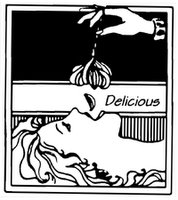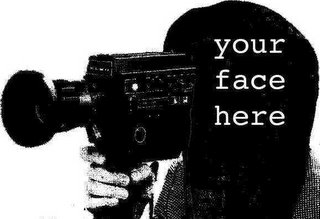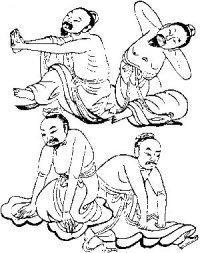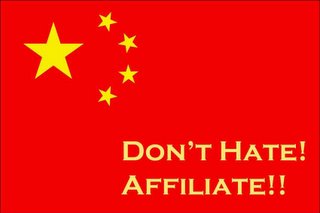
When I was in primary and high schools in the 1980s, preparation for the Chinese New Year would start one month before the holiday. My family, like every other family in the work unit, cured our own pork and made spicy sausages. I still remember watching my mom’s frost-bitten fingers massaging spices and salt onto pork chunks, and my dad, with the help of chopsticks, stuffing ground pork mixed with chili sauces into intestines freshly bought at the market. My sister and I, considered too young to handle meaty tasks, would huddle nearby around a tiny coal stove in the damn cold air, dreaming of the day of the holiday feast when we could have all the meat we’d want.
In the early 1980s, most families in China, including ours, could not afford meat every day. Our work unit, a construction company for coal-based power plants migrating and polluting all over China, had just returned to Chengdu, the capital of Sichuan province in southwest China. The work unit had built walls in some single-floor warehouses, dividing the long stretched space into individual units. Each family got an unit which was in turn divided into a front and a back room with a wall half way up. In front of each unit, the work unit helped erect a small kitchen made of bricks. That’s our first kitchen where the home-made pork chunks and sausage links hanged off the roof.
After cured pork and sausages, the family then started making the ingredients for rice balls. Rice balls carry a special meaning for Chinese New Year because their round shape puns on Tuan Yuan, the Chinese word for family getting together. My dad would soak the sticky rice over a Saturday night, and then on Sunday, my sister and I would feed the sticky rice into a tiny hole of a stone roller. My dad never let me to push the roller around. It always took a while, and quite some spilled scoops of sticky rice, before our feeding rhythm got in sync with my dad’s rolling. Out of the roller came the ground sticky rice like diluted milkshake. We collected it in a cloth bag, tied the bag tight, and squeezed out the water by leaving the bag under the heavy top of the stone roller. After a day, my dad would take out the now semi-dry sticky rice, and leave it air dry in small chunks on big round bamboo trays.
While the ground sticky rice was being dried, my sister and I cracked open peanuts and knocked open walnuts, which always seemed to tak an entire afternoon. Raw peanuts and walnuts were roasted in our small iron wok over our tiny coal stove. My dad then chopped them into tiny bits with a meat cleaver, mixed them with roasted sesame ground in a mortar, and added in a lot of freshly rendered lard and sugar. The lard solidified the whole mix into sweet stuffing which we would use for months afterwards for rice balls and steamed buns.
Sichuanese have always been more obsessed with food (Cantonese may beg to differ). The home-made holiday fare thus provided popular sources of neighborhood gossip and family pride. Before the arrival of Coca-cola and Maxwell Instant Coffee, home-made cured meat and rice-ball stuffing were part of the holiday gift-giving which would be repeatedly re-gifted, since every family already had so much of its own.
On New Year’s Eve, our immediate family would get together for a feast. My dad usually cooked (Sichuanese men are proud of being good cooks; me no exception) for a whole day for the family of 7. Then on New Year’s day or the day after, all of us would visit my grand uncle’s family of 4 for another banquet. A couple of days later, we would invite my grand uncle’s family back to my grandpa’s place for yet another dinner. Everyday the adults played mah-jong which we kids were forbidden to touch.
Family visits and dinners would last until the 15th day of the new year when we all went out for the lantern festival. The entire population of Chengdu would appear out checking the lanterns in the People’s Park. It would be so crowded that my parents often spent most of the time nervously checking around to make sure my sister and I didn’t get lost. In those days the lanterns were elaborate and colorful, like the floats in Pasadena’s Rose Parade; maybe people had more time then, or maybe a child’s eyes expanded the vision out of proportion.
Slowly, the celebration started to change. People made more money and every family gradually bought a TV set. My parents moved three times, each time into a bigger apartment. CCTV’s new year’s eve gala show became a new holiday ritual before we figured out how to learn back the old rituals disrupted by the Cultural Revolution. There were more varieties on the new year dinner table – more takeouts from neighborhood restaurants, including shredded pig’s ear and beef tripe soaked in chili oil, roasted ducks and cakes, and fewer stir fries that would require lengthy manual preparation at home. New Year’s Eve dinner had to finish by 8pm so we could all go back to our respective home and watch the gala show.
More people joined the family as well. My two aunts brought their dates to the family feasts. Then my two cousins from my grand uncle’s family did the same. They all got married and had kids. My widowed grandpa remarried. The last time I came home for the holiday in 1992, 14 years ago, the family gathering had swelled to too big a size for the cooks to handle. Preparation had to start days in advance.
During the 12 years in the US, I stopped celebrating Chinese New Year. At most my Chinese friends and I would go to a Chinese restaurant and have General Gao’s Chicken. Everybody was busy studying and later working. The celebration was reduced to an obligatory phone call home. My parents and I would ask each other, “Have you eaten?”, and “How was the food?”.
When I turned 30, I started hosting Thanksgiving dinners for my friends, mostly Chinese immigrants who, consciously or subconsciously, looked for an anchor in a strange land. I enjoyed heating up turkeys, making mashed potato, and cooking up some casserole dish the recipe of which I found on allrecipes.com. But nothing, nothing compared to the cured meat and home-made sausage links in my memory.
This year I finally made it back to my hometown for Chinese New Year. The family is scattered everywhere. My sister is traveling in the US while my brother-in-law took my niece to his family in Gansu. Aunt Rongling’s family moved to Shanghai. The communication with my grand uncle’s family has dwindled to almost zero because his family has grown to a size of 8. There’s always been squabbling through the years which we as kids were not aware of; and each family fared differently in the country’s economic miracle, which makes it hard to avoid jealousy and gossip.
Gone were the home-made cured meat and sausage links. Everybody got lazy, and pickier about food. No home-made food could compete with the restaurant cooking which is getting oilier and spicier every season. Now only stores still have cured meat and sausage links hanging off their roofs. Few make rice balls anymore; there were ready-to-cook ones sold in plastic bags in the supermarkets.
We had our family get-together dinner two days before the new year so my mom could have undivided attention to the CCTV gala show on New Year’s eve. I volunteered to cook for a dinner at home. My mom just sneered, “you still know how to cook?” I hesitated. The turkey and the mashed potato and broccoli casserole would never fly in Sichuan.
We went to a restaurant and had a set dinner for 500 yuan, the same food I could have in a Sichuan restaurant in Beijing. Sitting at the dinner table with the 8 still left in Chengdu in our immediate family, I missed the days when we were a lot poorer, when my sister and I had to be cajoled into helping make rice ball stuffing in the cold winters with no heating in that tiny apartment of ours, when we seemed to have a lot more relatives to play with and to visit, and whenever I visited a friend, his/her family would force me to taste their own cured meat and rice balls. The country is developing, so is the distance between me and the past I remember.
I handed out red envelopes at the dinner table to my grandpa, my aunt, my parents and my young cousin who’s 13. It’s my duty now to support the family, in whatever trivial means. Alas, how I miss the days when a 5-yuan bill in the red envelope my grandpa gave me would make me jump with joy; it would send me and my sister hurrying to the firecracker store nearby. All the families would get out when the New Year stroke, and lit the fireworks family-by-family, with all cheering.
It’s all changed now. No firework is allowed in the city proper. The wealthy would drive out to the suburbs, after their big family banquets in the fancy restaurants, and light up fancy fireworks which cost a fortune. The holiday rituals, however few we used to have (god knows how little we Mainland Chinese knew about our own holidays, compared to our “compatriots” in Hong Kong and Taiwan), are further eroding away in this shiny materialistic new China.
As I was reminiscing about change, my cousin got antsy in her seat. “Can I go home to watch TV now?” she asked her mother, my aunt.
Her mother was annoyed, “sit and eat some more food. Wait for the adults to finish.”
I paused my emoting and studied my cousin’s restlessness for a beat. Alas, whom am I kidding? I didn’t like the holidays that much when I was a kid – it was mostly a bore to go through all the visits and family meals; there was always too much food that nipped the pre-holiday craving within 5 minutes of the first holiday dinner, too much waiting for the adults to finish their mah-jong, too many deafening firecrackers on both sides of the narrow streets that hurt the eardrums, too many ultra-sweet rice balls for breakfast every day, and too much cured meat which the family couldn’t finish until early summer.
It’s the memory that’s playing the tricks, tricking me into thinking that I used to have Hallmark-Classic holidays in which relatives were nicer, food was better and time was, less transient.
“Don’t stop yet, eat some more.” My mom prodded me with her elbow. My aunt asked when I would bring home a girlfriend. My grandpa asked when I could get a proper job to make some proper money. My dad looked at me earnestly over the spicy dishes, “Listen to all your relatives. You are not young anymore. Better start worrying about retirement.”
I smiled at my family and my memory and dug my chopsticks into the steamed fish. Memory is like family, often dysfunctional, often subjecting us to a bondage that suffocates up close, yet one misses with sweet longing once far away. Better leave it hanging off from the roof top like the cured meat and sausage links, and let it stroke from a distance the nostalgia of make-believes.
Happy New Year.










